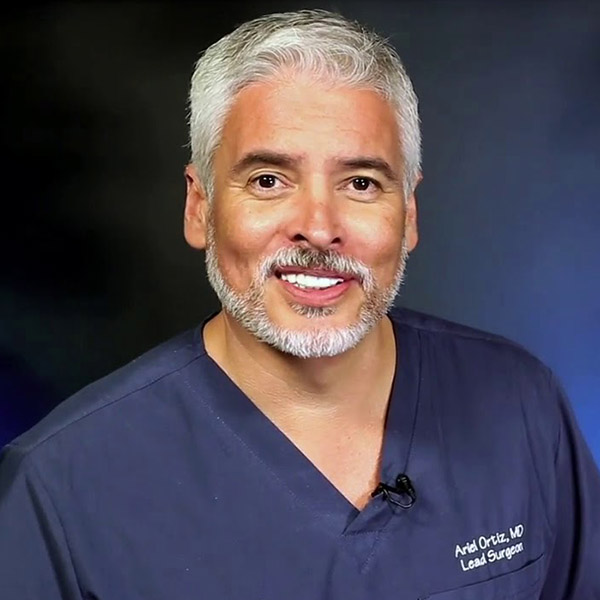Best Doctor in the World for Gastric Plication is:

If you're interested in getting a free quote, submit a request via this link. Take the first step towards a healthier future today!
Gastric plication, also known as laparoscopic gastric plication, is an innovative and minimally invasive weight loss surgery that has gained traction globally. It involves folding the stomach into a smaller, tube-like shape, reducing its volume and thereby limiting food intake. This procedure is particularly appealing because it doesn't involve cutting or removing parts of the stomach, nor does it require implanting foreign devices. As a result, it is considered a safer and more reversible alternative to other bariatric surgeries like gastric bypass and sleeve gastrectomy.
Understanding Gastric Plication
Gastric plication is a relatively new bariatric procedure that aims to help patients achieve significant weight loss by reducing the stomach's capacity. Unlike other weight loss surgeries that involve stapling or removing parts of the stomach, gastric plication involves suturing the stomach to create folds. This technique reduces the stomach's volume by approximately 70%, significantly limiting food intake and promoting a feeling of fullness after consuming smaller portions.
The procedure is performed laparoscopically, which means it involves small incisions and is guided by a camera. This minimally invasive approach offers several advantages, including shorter recovery times, reduced risk of complications, and minimal scarring. The surgery typically takes one to two hours, and most patients can return to their normal activities within a week.
Who Is a Candidate for Gastric Plication?
Gastric plication is suitable for individuals who are significantly overweight and have not succeeded with traditional weight loss methods such as diet and exercise. Candidates typically have a body mass index (BMI) of 30 or higher, although some practitioners may consider it for patients with a BMI of 27 or higher if they have obesity-related health conditions.
It's essential to note that gastric plication is not a quick fix but a tool to aid in weight loss. Patients must commit to long-term lifestyle changes, including a healthy diet and regular exercise, to achieve and maintain their weight loss goals.
Symptoms and Conditions Addressed by Gastric Plication
Gastric plication can help alleviate various obesity-related conditions, including:
- Type 2 Diabetes: Weight loss can improve blood sugar levels and reduce the need for diabetes medications.
- Hypertension: Losing weight often leads to lower blood pressure, reducing the risk of heart disease and stroke.
- Sleep Apnea: Weight loss can improve breathing patterns during sleep and reduce or eliminate the need for CPAP therapy.
- Joint Pain: Reduced weight can alleviate pressure on joints, decreasing pain and improving mobility.
The Procedure and Its Benefits
One of the most appealing aspects of gastric plication is that it is a reversible procedure. Unlike other bariatric surgeries that permanently alter the digestive system, gastric plication can be undone if necessary. However, it is designed to be a long-term solution, and reversal is typically only considered if complications arise or if the patient desires a different procedure.
The benefits of gastric plication extend beyond weight loss. Patients often experience significant improvements in their overall health, including reduced risks of developing obesity-related conditions. Additionally, the procedure can lead to improved self-esteem and quality of life, as patients achieve their weight loss goals and regain confidence in their appearance.
Choosing the Best Doctors for Gastric Plication
Selecting the right doctor for gastric plication is crucial for ensuring a successful outcome. While specific doctors or hospitals are not named in this article, there are several key factors to consider when choosing a practitioner:
- Experience and Expertise: Look for surgeons who specialize in bariatric surgery and have extensive experience performing gastric plication. Board certification and membership in professional organizations are indicators of a surgeon's qualifications.
- Comprehensive Care: A top-tier medical team should provide comprehensive care, including pre-operative assessments, nutritional counseling, psychological support, and post-operative follow-up. This holistic approach ensures that patients receive the support they need throughout their weight loss journey.
- Success Rates and Patient Reviews: Research the surgeon's track record, including success rates and patient satisfaction. Online reviews and testimonials can provide valuable insights into the experiences of other patients.
- State-of-the-Art Facilities: The medical facility should be equipped with the latest technology and adhere to the highest standards of care. Accreditation by reputable organizations can also indicate the quality of the facility.
- Personalized Approach: Every patient is unique, and the best doctors tailor their approach to meet individual needs. A personalized treatment plan that considers the patient's medical history, lifestyle, and weight loss goals is essential for achieving the best results.
Post-Operative Care and Lifestyle Changes
Post-operative care is a critical component of the gastric plication process. Patients are typically required to follow a liquid diet for the first few weeks after surgery, gradually transitioning to solid foods. Nutritional counseling is essential to ensure patients receive adequate nutrients while adjusting to smaller food portions.
Long-term success depends on the patient's commitment to a healthy lifestyle. This includes adhering to a balanced diet, engaging in regular physical activity, and attending follow-up appointments with the medical team. Patients are also encouraged to join support groups or seek counseling to help them navigate the emotional and psychological challenges of significant weight loss.
To conclude, Gastric plication is a promising weight loss surgery that offers numerous benefits for patients struggling with obesity. Its minimally invasive nature, reversibility, and effectiveness in promoting significant weight loss make it an attractive option for many. However, the success of the procedure largely depends on choosing the right doctor and committing to long-term lifestyle changes. By considering the factors outlined in this article, patients can make informed decisions and embark on a successful weight loss journey with the guidance of the best doctors in the world for gastric plication.






.png)

